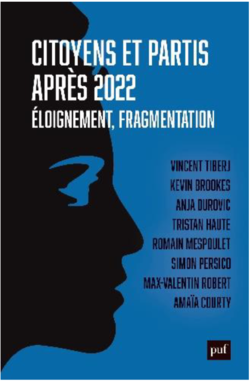Romain Mespoulet | Associate Postgraduate

Home Institution
:
Sciences Po Grenoble - UGA
|
Disciplines
:
Political Science
|
Institution of thesis
Supervisor
EfSoLaw - Effects of EU soft law across the multilevel system
The project “EfSoLaw” aims to advance the understanding of the performance of the EU multilevel system through a longitudinal analysis of the nature and effects of soft law. EU law affects governments and populations and has direct influence on the lives of citizens. With the governance turn and ever more complex decision-making in Brussels legislation increasingly takes the form of soft law. The term captures instruments such as recommendations, guidelines or communications that do not entail jurisdictional control but produce important legal and practical effects. Yet, we still know relatively little about why member states and EU institutions chose either soft or hard law to govern.
The project is ambitious in its scope and design. As a first step, it assessed the nature of EU soft law through a complete inventory of EU level instruments adopted in seven policy areas that differ in the character of EU policy-making over a 15 year period (2004-2019): Common Foreign and Security Policy, Financial Regulation, Food Safety, Pharmaceutical Regulation, Police and Judicial Cooperation, State Aid and Sustainable Agriculture. This data was collected in the new comprehensive database “EfSoLaw”. Second, the project explores how and why EU soft law is used at the domestic level through in-depth case studies. What is more, we analyse the effects of sectoral and country-specific factors on the domestic use of EU soft law through a survey in central administrations and courts in France and Germany. In a third step, we investigate when and why soft law feedbacks into EU policy-making. Finally, the project makes it possible to employ a multidisciplinary perspective and country expertise by combining a team of German and French political science and legal scholars.
The project is important because it addresses a central topic of political systems, namely the relationship between law and politics. In delivering a systematic, comparative and longitudinal assessment of the nature and effects of soft law, the project goes beyond existing accounts that either optimistically stipulate the potential of soft law for effective policy-making or pessimistically point at its narrow legal relevance, the creation of uncertainties and lack of accountability often based on static accounts of a legal phenomenon.
To our knowledge, it is the first project to causally analyse the effects of soft law across policy sectors and countries, including dynamic feedback into EU policy-making.
Citoyens et partis après 2022
May 15, 2024Romain Mespoulet , Vincent Tiberj, Kevin Brookes, Anja Durovic, Tristan Haute, Simon Persico, Max-Valentin Robert et Amaïa Courty
Edition: PUF
ISBN: 9782130867029
De quoi les élections de 2022 sont-elles le signe ? Celui de la consolidation d’un nouveau système partisan autour de trois pôles, libéral, national-conservateur et social-écologiste ? Ou bien celui de l’amplification d’une transformation démocratique dont le niveau d’abstention et la rupture avec les partis et les responsables politiques sont les symptômes les plus évidents ? Et quel impact pour les évolutions de long terme qui affectent le lien entre citoyens et politique comme le renouvellement des générations avec l’émergence des millenials, mais aussi les transformations des manières de s’informer ou les demandes d’autres manières de faire démocratie ?
Dans cet ouvrage collectif, il s’agit de croiser les regards entre générations de chercheuses et chercheurs et d’analyser « à froid » ce qui s’est passé en 2022 à partir de différentes enquêtes collectives originales. Il s’agit de mettre la lumière sur ces évènements récents, mais aussi de les resituer dans leurs perspectives scientifiques et citoyennes, afin de comprendre ce que voter veut encore dire dans la France contemporaine.
